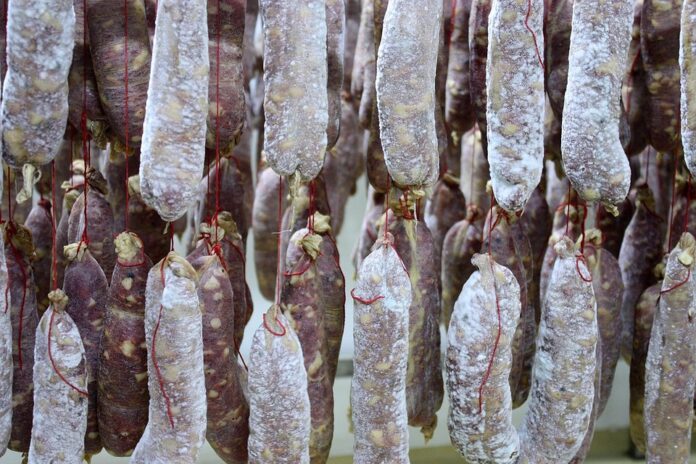What Is Salt Pork and How It Is Cured and Stored
Salt pork is a type of pork that has been preserved through the process of curing with salt. This method of preservation has been used for centuries to extend the shelf life of pork and other meats. Salt pork is typically made from the fatback of the pig, which is a thick layer of fat located on the back of the animal.
Curing Process
The curing process of salt pork involves rubbing the meat with salt and allowing it to sit for a period of time to draw out moisture and prevent the growth of bacteria. The salt acts as a preservative, inhibiting the growth of harmful microorganisms that can spoil the meat. Additionally, the salt helps to enhance the flavor of the pork through the process of osmosis, where the salt penetrates the meat and infuses it with a salty taste.
After the initial salting, the salt pork is typically left to cure for several weeks to several months, depending on the desired level of preservation and flavor. Some recipes may call for additional seasonings such as sugar, herbs, and spices to be added to the salt mixture to further enhance the flavor of the meat.
Storage
Once the salt pork has been properly cured, it can be stored at room temperature in a cool, dry place for an extended period of time. The salt acts as a barrier to prevent the growth of bacteria, making the meat safe to consume even without refrigeration. However, it is important to keep the salt pork in a tightly sealed container to prevent moisture from entering and spoiling the meat.
For long-term storage, salt pork can also be refrigerated or frozen to prolong its shelf life. When stored in the refrigerator, salt pork can last for several months, while frozen salt pork can last for up to a year or more.
Industry Insights
The production of salt pork has declined in recent years due to the popularity of other preservation methods such as refrigeration and freezing. However, salt pork still holds a special place in many culinary traditions and is often used in dishes such as soups, stews, and casseroles to add flavor and richness.
Companies in the meat processing industry that specialize in salt pork production include Hormel Foods Corporation, Smithfield Foods, and Tyson Foods. These companies use modern techniques and equipment to produce high-quality salt pork products that meet consumer demand for traditional preserved meats.
Financial Data
According to industry data, the global market for preserved meats, including salt pork, is estimated to be worth billions of dollars. The demand for preserved meats is driven by factors such as convenience, shelf stability, and flavor enhancement. As consumers seek out traditional and artisanal foods, the market for salt pork and other cured meats is expected to continue to grow in the coming years.
In conclusion, salt pork is a traditional preserved meat that has been enjoyed for centuries. Through the process of curing with salt, salt pork is able to be stored for extended periods of time without refrigeration. While the production of salt pork has declined in recent years, it still holds a special place in culinary traditions and continues to be produced by companies in the meat processing industry. With its unique flavor and versatility in cooking, salt pork remains a popular choice for many consumers seeking traditional preserved meats.




